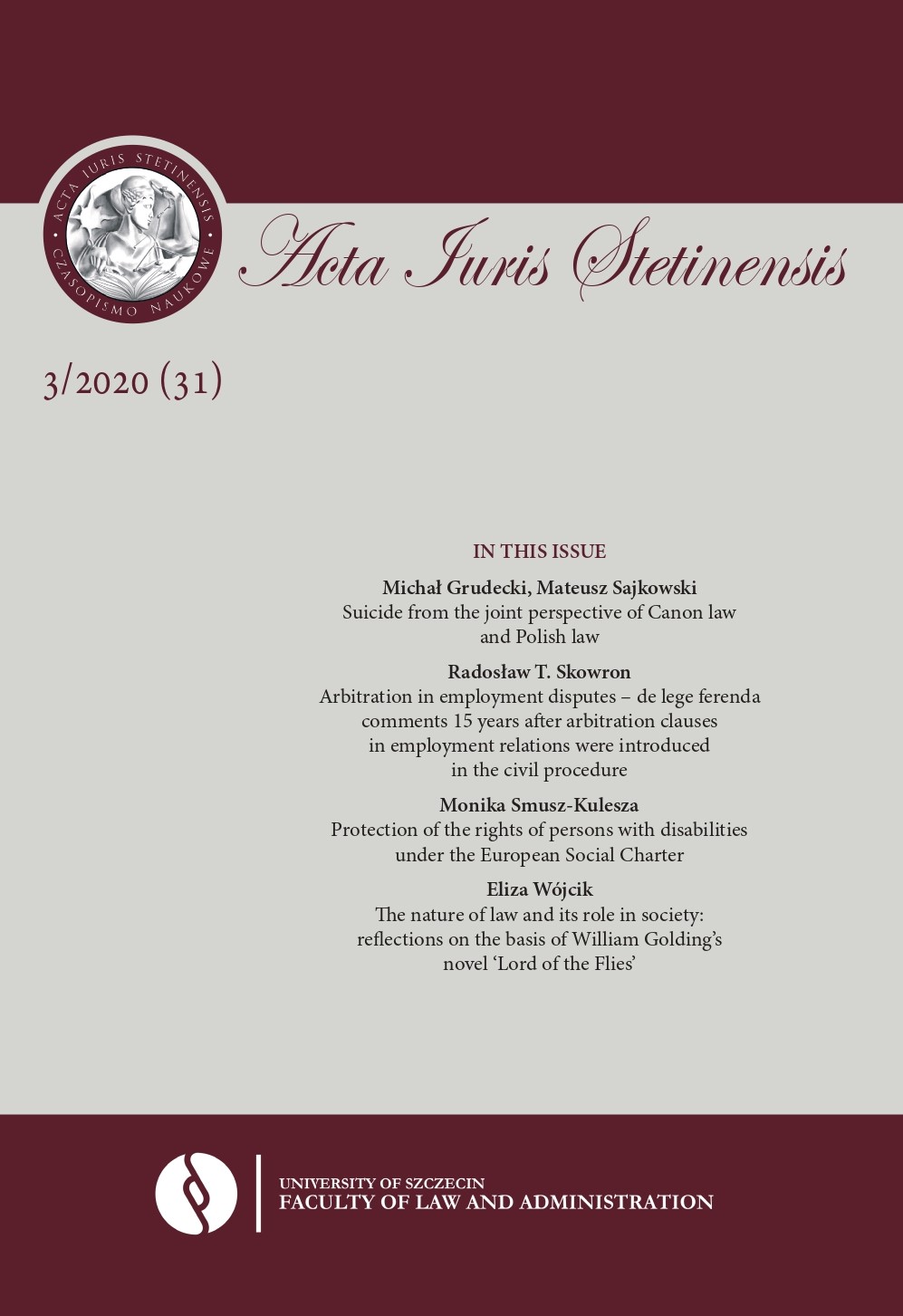The nature of law and its role in society: reflections on the basis of William Golding’s novel ‘Lord of the Flies’.
The nature of law and its role in society: reflections on the basis of William Golding’s novel ‘Lord of the Flies’.
Author(s): Eliza WójcikSubject(s): Law, Constitution, Jurisprudence, History of Law, Human Rights and Humanitarian Law, Sociology, Social Norms / Social Control, Sociology of Law
Published by: Wydawnictwo Naukowe Uniwersytetu Szczecińskiego
Keywords: literature; values; morality; natural law; legal positivism; mechanisms of power
Summary/Abstract: Literature provides a great deal of material for more general observations regarding the assessment of law and its role in public awareness. Literary works act as a mirror in which we can see the dangers of breaking the link between law and morality. An excellent example is William Golding’s novel, ‘Lord of the Flies’. His parabolic story about human nature provides a reflection on the role and nature of law in society. The task of defining the essence of law and its role in society has captured the minds of legal theorists, philosophers, and sociologists for centuries. This paper includes a brief analysis of two basic concepts of the nature of law, i.e. natural law and legal positivism. It is an attempt to show that theoretical beliefs about the essence of law have a direct impact on the practice of making and applying laws. The pluralism of values is used by various social groups or the ruling political elite to achieve their own goals. They value individual civil liberties, giving primacy to values that safeguard their interests. This often happens at the expense of other groups whose freedoms are being limited. Importantly, such mechanisms of assigning value are used in both undemocratic and democratic systems.
Journal: Acta Iuris Stetinensis
- Issue Year: 2020
- Issue No: 31 (3)
- Page Range: 123-138
- Page Count: 16
- Language: English

